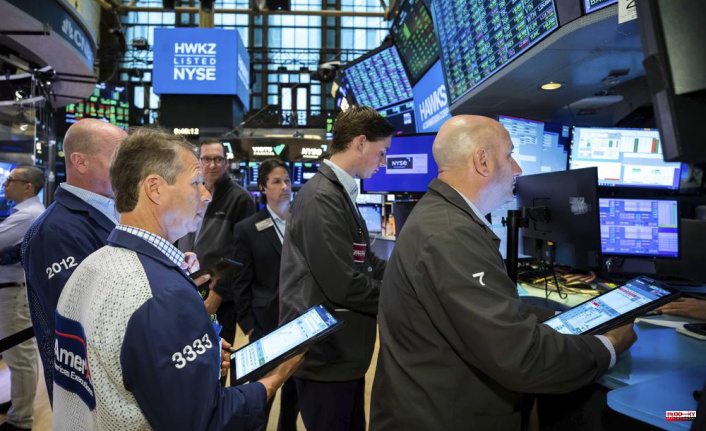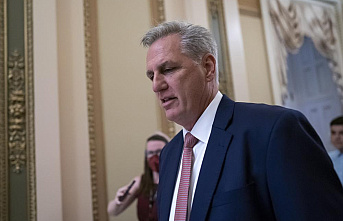Wall Street's best week in 18-months was marked by a strong rally led by technology companies. This gain ended a seven-week losing streak in the market, which was the longest since 2001.
The S&P 500 gained 2.5% and ended the week 6.6% higher, marking its highest weekly gain since November 2020. The Dow Jones Industrial Average rose 1.8%, while the tech-heavy Nasdaq gained 3%.
Investors received encouraging news regarding inflation, which led to a strong week. According to the Commerce Department, inflation increased 6.3% in April compared to a year ago. This is the first slowdown since November 2020. It's a sign that rising prices might be easing, at least temporarily.
Wall Street was looking for signs that inflation might be easing and trying to determine how low stocks could sink, so the report was published.
Ross Mayfield, Baird's investment strategy analyst, stated that "at this point it's all the marketplace needs." It's certainly one of the signs you would like to see.
S&P 500 closed 100.40 points higher at 5,158.24. The Nasdaq gained 390.48 points, to 12,131.13. This was the third consecutive gain for both indexes. The Dow gained 575.77 points, or 6.96 percent, to 33,212.96.
Stocks of smaller companies also saw a slight increase in value. The Russell 2000 gained 49.66 points or 2.7% to 1,887.90.
As concerns over inflation and rising interest rates mount, the market overall has been in a slump since almost two months. Investors were rattled last week by disappointing retail reports, including those from Target and Walmart, that stoked concerns about rising inflation and impacting profit margins, and reducing consumer spending.
Although trading was slow throughout the week due to the release of encouraging earnings reports by retailers such as Macy's, Dollar General, and financial updates, the market pushed higher most of the week.
Retailers were among those who gained the most Friday, as investors reviewed the latest earnings report to gain a better understanding of the impact rising inflation has on consumers and businesses. Ulta Beauty, a beauty products company, saw a 12.5% increase after it raised its profit forecast for this year. Amazon rose 3.7%
Many companies were affected by disappointing earnings and financial information. American Eagle, a clothing retailer, fell 6.6% following weak earnings in the first quarter.
Businesses are being squeezed by inflation, which is at its highest point in four decades. Inflation has risen to a point where companies raised prices on everything, from food and clothing, to protect their margins. However, consumers have remained resilient. The inflation picture was worsened by Russia's invasion in Ukraine, which pushed global food and energy prices higher.
Although crude oil prices in the United States were fairly stable, they are expected to rise by nearly 60% by 2022. This year, corn and wheat prices have increased by 30% and 50% respectively.
Inflation is causing supply chain problems that were made worse by China's closure of several cities.
Businesses have found it more difficult to offset inflation and this is causing consumers to spend less on expensive goods and more on necessities. This has raised concerns about the Federal Reserve's ability to limit the inflation impact.
Investors are concerned that the Fed will raise interest rates aggressively to combat inflation. However, investors fear that this could cause a recession.
The 10-year Treasury yield, which is used to set mortgage rates, fell to 2.74% late Thursday from 2.75%.








